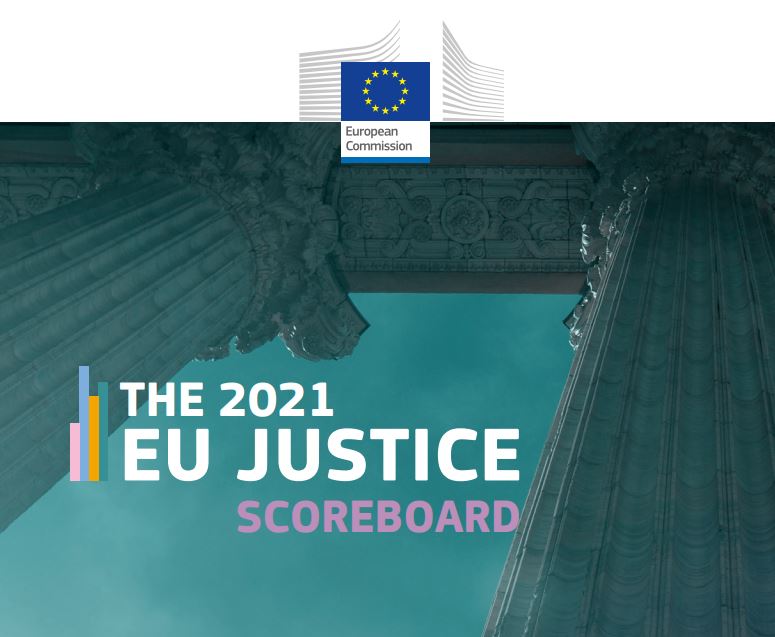Curious to know how good, efficient and independent is justice in your country?

date: 13/07/2021
Digitalisation
The findings show that the majority of Member States already have different digital tools at the disposal of courts, prosecutors and staff members, including secure electronic tools for communication. However, in a number of Member States courts are able to communicate via secure electronic solutions only with certain legal professionals and/or national authorities. In the case of prosecution services, less than one-third of Member States provide for comprehensive secure electronic communication with legal professionals and national institutions.
Most Member States provide citizens and businesses with online access to ongoing or closed cases in civil/commercial and administrative cases, albeit in various degrees. Nevertheless, in criminal cases in the majority of Member States defendants and victims have very limited possibilities to follow or carry out part of their case using digital solutions, while in some Member States this possibility does not exist at all.
Compared to previous years, online access to court judgments has not progressed, particularly for the publication of judgments at the highest instance: 17 Member States publish all civil/commercial and administrative judgments and 15 Member States also publish criminal judgments at the highest instance.
Efficiency and independence
Challenges regarding the perception of judicial independence persist. Although in two-thirds of Member States, public perception of judicial independence has improved since 2016 compared to last year, the public's perception of independence has decreased in almost half the Member States. Interference or pressure from government and politicians was the most widely stated reason for the perceived lack of independence of courts and judges.
The Scoreboard also shows that efficiency has improved or remained stable in 10 Member States, while it decreased, albeit often only marginally, in nine Member States between 2012 and 2019, before the start of the COVID-19 pandemic.
Beyond digitalisation of the judiciary systems, novelties in the 2021 scoreboard include two new indicators showing an overview of the bodies and authorities involved in the appointment of Supreme Court judges.
Supreme Courts, as final instance courts, are essential to secure the uniform application of the law in Member States. Member States need to organise the procedure of appointment in a way that ensures their independence and impartiality. In that respect, European law requires Member States to ensure that, once appointed, judges are free from influence or pressure from the appointing authority when carrying out their role.
The price of justice
Compared to 2019, the accessibility of legal aid has been tightened in about a third of Member States; it has widened in five Member States. This development is in line with the longer-term trend, where legal aid has become less accessible in some Member States. This can have dire consequences: the difficulty in benefiting from legal aid, in combination with significant court fees in some Member States, could discourage people living in poverty from accessing justice.
The information contained in the Scoreboard contributes to the monitoring carried out in the framework of the European Rule of Law Mechanism. It also feeds into the Commission's Rule of Law Report.
For more detailed information, you can consult the following links:
2021 EU Justice Scoreboard
Q&A on the Scoreboard
Eurobarometer on perceived independence of national justice systems
EU Rule of Law Toolbox
